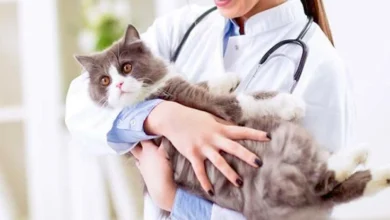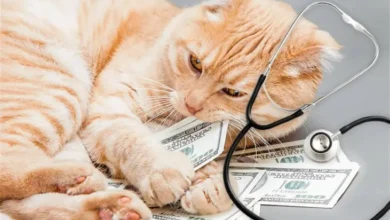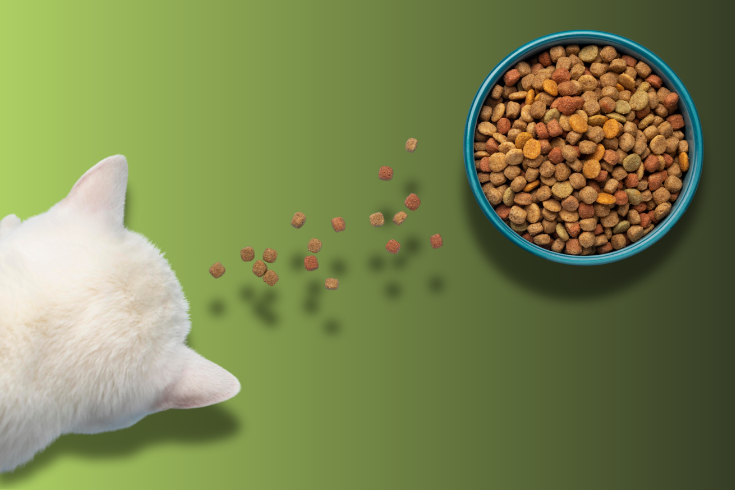
Is Raw Cat Food Diet a Good Idea? 11 Questions to Ask Before
Raw food diet for cats has grown in popularity in recent years because wild cats heavily rely on it. Most pet parents think that it’s the most natural and healthiest option out there, but that’s not the case. That’s because it is the most significant responsibility, and it comes with some genuine concerns, like, is it worth it or safe to give a raw cat food diet to your feline friends?
If you are struggling with the same concern, you are not alone. As a pet parent, you must know about the perceived benefits and risks of giving raw cat food. To help you at this point, Pet Life Expert has come up with a comprehensive guide that covers the most important and useful queries to balance your diet while feeding raw food to your cat.

Raw Food Diet For Cat Recipes | 11 Questions To Consider
Have a look at the 11 essential questions that we’ve addressed to help you make an informed decision about whether you should switch to raw or organic cat food.
1. What Is Raw Food Diet for Cats?
Raw can be a broad term, but when it comes to food, it’s about organic. This term generally refers to unprocessed food made from organic ingredients. This uncooked food involves items like meat, bones, organs, and some supplements with essential minerals and vitamins. It also includes animal proteins and other fiber sources. It offers variety, convenience, and careful preparation to meet your cat’s nutritional needs. This raw food diet can be:
- Commercially Prepared
- Freeze Dried
- Homemade
2. What Are the Benefits of a Raw Food Diet for Cats?
Several benefits of raw food for cats are highlighted for feeding the best meal to your cat.
Improved Coat/Skin Health
Raw food helps with healthy skin and shinier coats.
Improved Digestion
A raw diet can be digested, leading to better health.
Enhanced Energy
Organic food plays a crucial role in making cats playful and active.
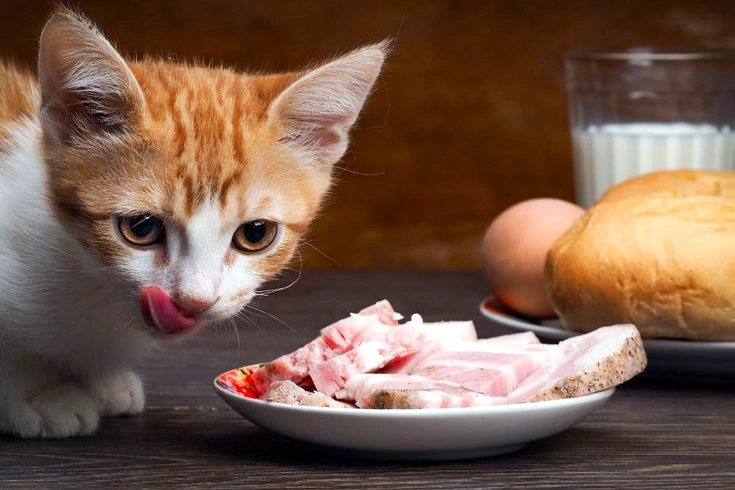
Weight Balance
When portioned perfectly, raw diets help maintain a healthy weight.
Improved Hydration
It also comes with a moisture content, making your cat stay hydrated.
Better Joint & Teeth
By promoting vitamin D, calcium, and natural enzymes, it keeps joints and teeth better.
3. Are Raw Food Diets Safe for Cats?
With the popularity of bacteria and other cross-contamination in raw diets, safety is the main concern. Although the intake of raw cat foods is safe when properly handled, they also have some risks. It is suggested to buy high-quality and hygienic food to minimize risks and consult a nutritionist or vet. Here are some potential risks discussed.
Bacteria/ Pathogens
Raw food can contain harmful Salmonella or E. coli bacteria that can make a cat sick.
Nutritional Deficiencies
A raw meat diet is not properly planned, which is why it lacks essential nutrients.
Cross Contamination
If not properly sourced, uncooked meals may contain some hazardous parasites.
4. What Health Concerns Are Helped By a Raw Diet?
Some health concerns can be properly resolved by adding a raw diet to your cat’s meal. In case of any medical condition, pet owners must consult with a vet. These health concerns are:
Reduced Allergies
Allergies caused by additives and fillers in processed food can be reduced by raw food.
Dental Health
Appropriate-sized raw bone chewing can help keep the teeth of your feline friend clean.
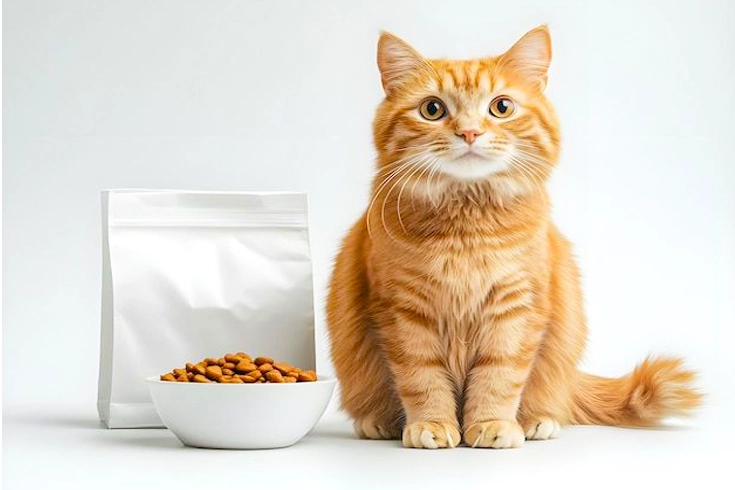
Digestive Issues
Simple organic diets are a helpful solution for cats with sensitive stomachs and digestion issues.
Weight Management
The natural or raw ingredients in food provide a strong aid in maintaining obesity issues in cats.
Heart Health
Another help offered by the best raw cat food diet plan is minimizing heart diseases in your cats.
Diabetes/ BP
Diabetes and blood pressure control are other perks that organic cat food diet recipes offer.
5. Who Should Not Use Raw Diets?
While pet owners think they can feed raw food to every cat, that’s not necessarily true in particular scenarios. Even the best raw cat food is not suitable for all felines. For instance, if your cat falls into any of the below-mentioned categories, discover other raw diet food for cats plans or consult with a vet.
Kittens
The growing bodies of kittens require balanced nutrition. So, raw food diets for cat recipes are not for them.
Senior Cats
Additionally, senior cats have a weaker immune system. So, they cannot stand or fight against bacteria in raw food.
Cats with Specific Health Issues
Sometimes cats have specific health issues, so you can move towards a specialized raw cat food for kidney disease.
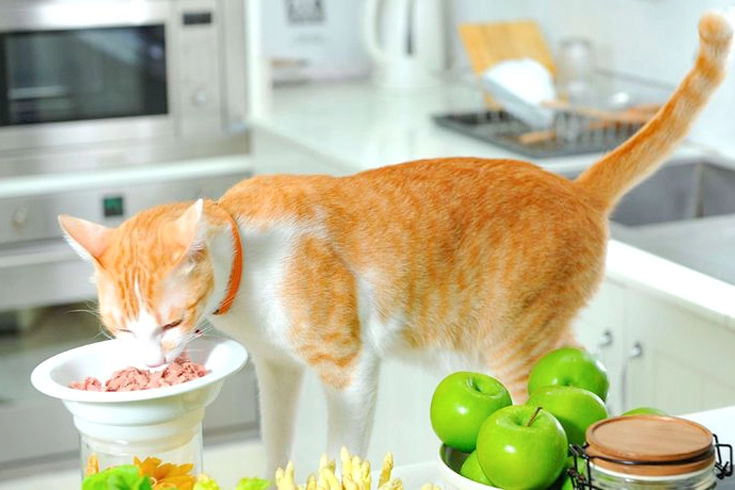
6. Are Raw Food Diets Balanced & Complete?
Being a carnivore family, cats require some specific nutrients like calcium, taurine, and vitamins A and D. The right proportion of these essential nutrients is not found in raw food. To make sure your feline friend gets a complete and balanced diet. A balanced diet can be guaranteed by:
- Using specifically formulated cat supplements
- Following recipes recommended by pet nutrition experts.
- Ensuring you pick the right organic cat food diet brand
- Avoiding homemade raw cat food/preferring commercial ones.
- Food is prepared to meet AAFCO standards of nutritional diet.
7. How Can I Prepare a Raw Food Diet for Cats?
It might seem easy to think about, but preparing an organic food diet is not that simple. That’s because you’ve got to freeze meat to kill germs and carefully handle it to avoid contamination. If you are curious about how to make raw cat foods, here are some tips.
Source High-Quality Ingredients
It is advised to purchase fresh & organic ingredients from reputable pet stores.
Introduce Variety
Another thing is the use a mix of proteins, organs, and bones.
Add Supplements
Add some essential nutrients like taurine and omega-3 fatty acids.
Follow a Trusted Recipe
To make a recipe, use veterinary nutritionist’s guidelines.
8. How Do I Transition My Cat to a Raw Diet?
Every cat is different, so patience is the key during the diet adjustment. Your cat may have stomach discomfort if you abruptly change their diet, so make the change gradually.
Begin With Small
Start by adding a small amount of raw food to their existing meal plan.
Monitor Their Reaction
Closely look at their reaction to notice any sign of refusal or digestive upset.
Increase Gradually
After one or two weeks, enhance the portion size of raw food until it is fully replaced.
9. Why Not Just Use Dry & Canned Diets?
In general, dry and canned foods satisfy your cat’s nutritional demands and are convenient. Although you can read cat raw food diet reviews. But they too have drawbacks:
Dry Food
Dehydration may result from its lower moisture content and frequent fillers.
Canned Food
It may contain preservatives and is not as fresh as raw food, but it is better for hydration.
10. What Are Some Raw Diet Alternatives?
If you find any difficulty in transitioning to raw foods for cats, the safest choice is to move towards similar alternatives.
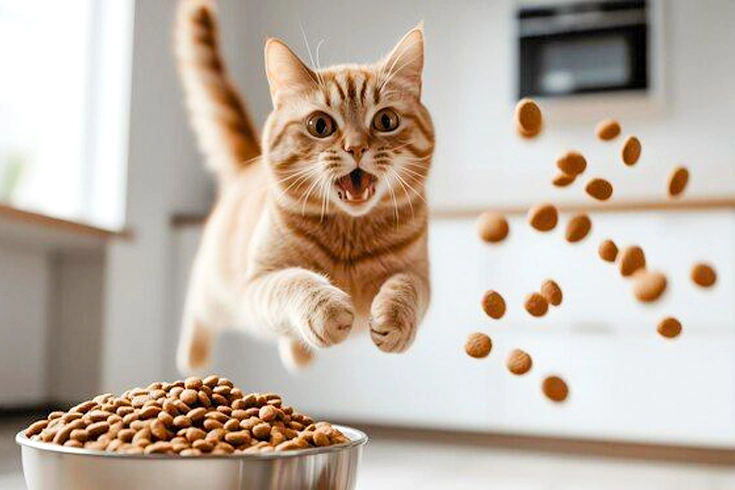
Cooked Homemade Diets
For individuals who are concerned about bacteria, the best choice is a homemade diet.
High-Quality Wet Food
Choose grain-free options with high protein content to feed your feline friend.
Freeze-dried or Dehydrated Raw Food
It is less messy and easy to store compared to fresh raw food for a cat.
11. What Do the Experts Say?
Regarding raw meals, veterinarians and feline nutritionists hold differing views. Others warn about the dangers of bacterial infection and nutritional imbalances, while others commend the natural method and its advantages.
One thing that experts agree on is that if you go with raw, do it correctly. See your veterinarian, maintain good hygiene, and make sure the diet is balanced and full. Make only the vet’s recommended food their diet portion to ensure they eat and live healthy.
To Finalize
Some cats may benefit greatly from a raw cat food diet, which offers benefits like improved digestion, shiny coats, and more energy. It is not for everyone, though. Your cat’s health, your capacity to safely handle raw food, and your ability to provide balanced nutrition should all be taken into account. Before making the change, spend some time researching and speaking with specialists. Raw food can be a rewarding and healthy option for your feline companion if done properly. In this guide, you’ll discover: What is an organic cat food diet? Or why are vets against raw diets for cats and raw food diets for cats: pros and cons? Hopefully, you can make a wise decision after reviewing this guide.
FAQs | Frequently Asked Questions
What Should Be the Frequency of Raw Cat Food Diet?
Well, this frequency depends on the type, breed, health, activity, and personal preferences of each cat. Usually, adult cats eat two meals per day. However, it can vary and be adjusted as per their nutritional needs.
Can Cats on Raw Diet Take Bones in Meals?
Yes! It is totally safe to give consumable bones in meals, including bone marrow, joint cartilage, and connective tissues. However, make sure to keep the size appropriate and uncooked so that they are not splintered and brittle.
Which is More Expensive: Raw Diet or Canned Food?
Typically, raw diets are more expensive than canned food. That’s because they contain organic, high-quality ingredients and many useful supplements that make them a little bit more costly than canned food.
Can Cats Eat Raw Meat?
Feeding raw meat to a domestic cat is generally not advised due to their health and safety. Raw meat contains Salmonella, E. coli, and Listeria bacteria’s that can make them ill.
How to Make Raw Food Diet for Cats Recipes?
While it is an interesting experience to make cat recipes using raw diet food, it is essential to understand the nutritional needs of your cats and give food that is recommended by vet only.
